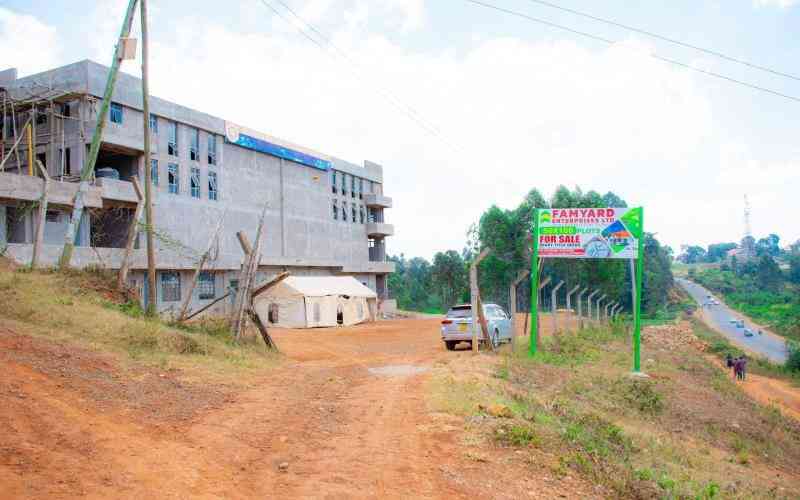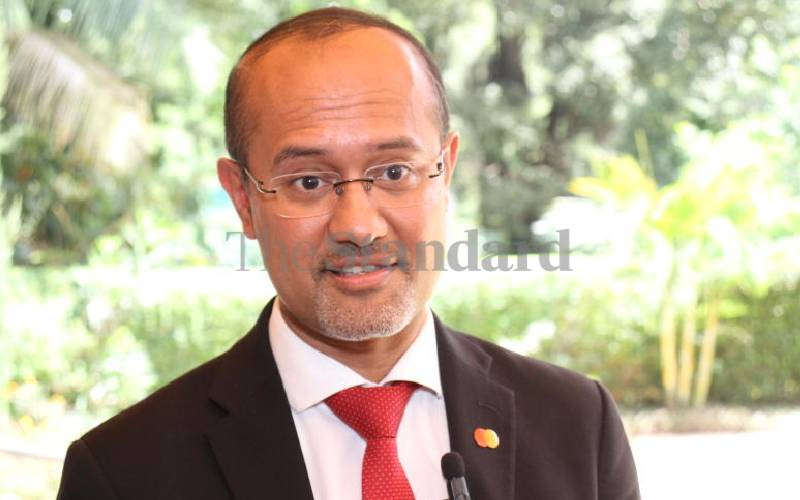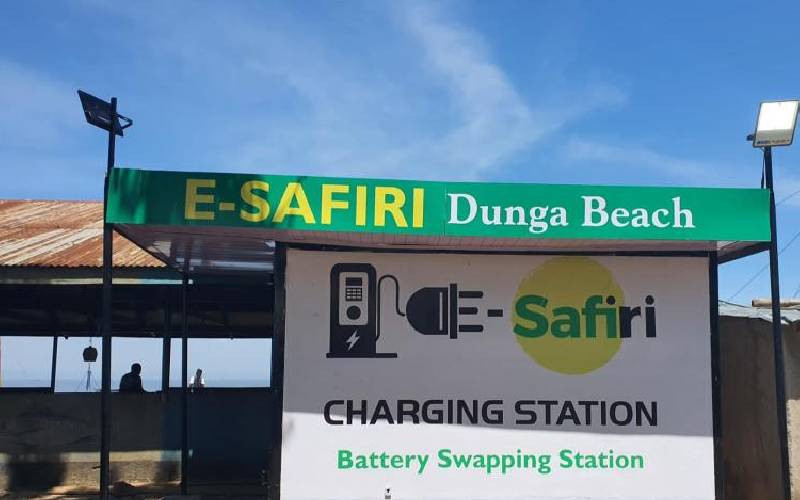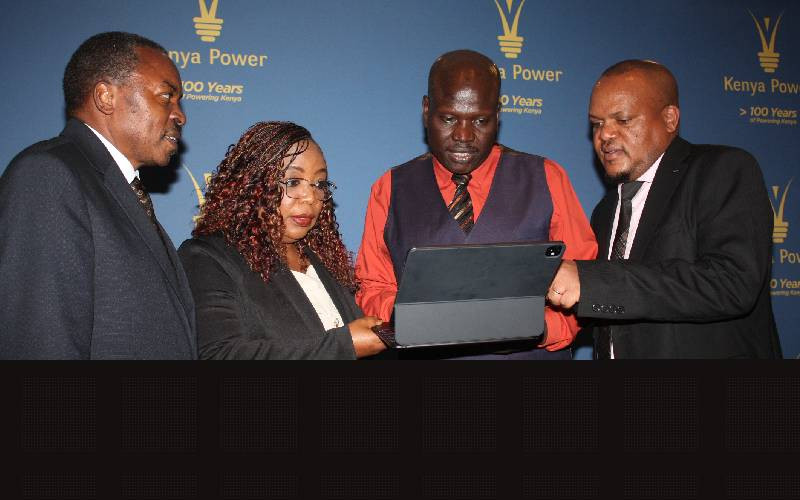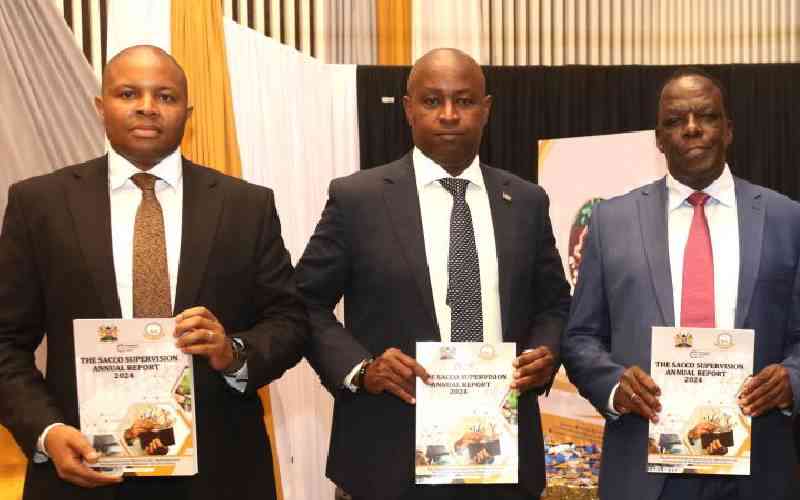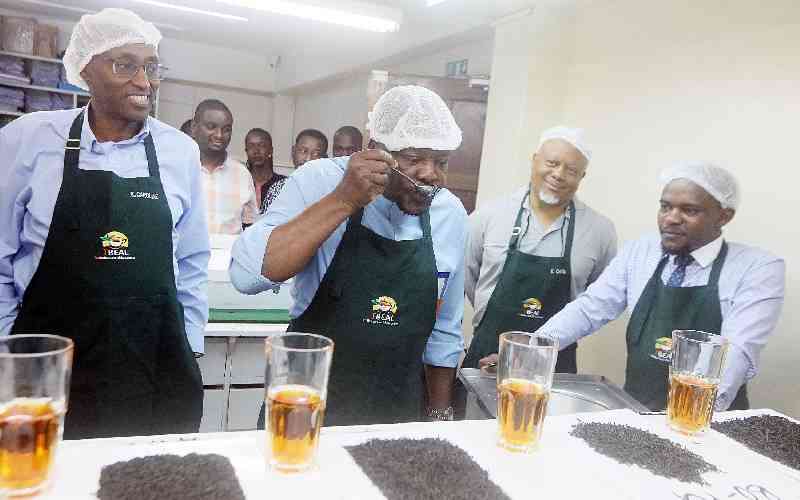
From Left: East Africa Tea Trade Association Chairman Abdi Hussein, Agriculture CS Mitahi Kagwe and Tea Executive, Africa Tea Brokers Mombasa, Edward Mwangi during the launch of orthodox tea auction in Mombasa, on September 24, 2025. [Omondi Onyango, Standard]
Senators have raised concerns over disparities in the payment of tea bonuses to farmers across the country. In some areas, farmers receive as much as Sh50 per kilo, while in others they get as little as Sh12 per kilo.
Nominated Senator Esther Okenyuri said the Kenya Tea Development Agency (KTDA) recently released the bonus rates for the 2024–2025 financial year. While farmers in the Mount Kenya region have received substantial bonuses, those in Kisii and Nyamira counties are reeling from significantly lower rates.
In a statement before the Senate plenary, Okenyuri said the glaring disparity has not only caused deep frustration but also triggered anger among farmers who feel shortchanged and discriminated against despite producing tea that is sold in the same international markets.
“I would like to inform my fellow Senators that farmers in Kisii and Nyamira counties have begun destroying tea collection centres in protest and disillusionment, believing their sweat and toil are not being fairly rewarded,” she said.
The senator added that the bonus discrepancies have reignited questions about the transparency of KTDA’s pricing and distribution systems, and whether smallholder farmers in certain regions are being systematically disadvantaged.
She told the House that tea remains one of Kenya’s leading foreign exchange earners and a source of livelihood for millions of families across the country. However, the growing sense of inequity risks destabilizing this critical sector if urgent interventions are not implemented.
“I would like to call on the Government, in collaboration with KTDA and relevant stakeholders, to urgently review the disparities and take decisive measures to restore fairness, equity, and the confidence of farmers in Kisii, Nyamira, and all other affected regions,” said Okenyuri.
Kisii Senator Richard Onyonka told the House that he had raised a question on tea bonuses two and a half years ago, but the Senate Committee on Agriculture, Livestock and Fisheries had yet to discuss the matter.
Onyonka lamented that Kenya still relies on traditional methods of tasting tea using the tongue, yet scientists have proposed more advanced parameters such as measuring the content of iron and potassium in tea to assess quality more accurately.
The Kisii Senator added that coffee testing faces similar issues, where farmers from Western Kenya are often told their coffee is of poor quality due to soil degradation and poor crop management.
“I hope that the Senate Committee on Agriculture, Livestock and Fisheries takes note. Our farmers are tired of hearing the same narrative. Even when I was an MP 10 or 15 years ago, tea bonuses were always a matter of contention,” said Onyonka.
Nandi Senator Samson Cherargei said claims that there is a difference in quality between tea from the Mount Kenya region and that from Bungoma, Nandi, Kericho, Bomet, Kisii, and Nyamira counties are unfounded.
He cited examples showing vast differences in bonus rates: Sh48.10 per kilo in Kinoro (Mount Kenya), Sh10 in Mudete Tea Factory (Vihiga County), Sh12 in Chebut, Sh10 in Kapsara, Sh12 in Nyansiongo, Sh24 in Momul, and Sh14 in Tergat.
Stay informed. Subscribe to our newsletter
“This is a great travesty and injustice against tea farmers in the country. If KTDA does not address this issue, we are going to uproot tea. Then we’ll see where lawyers and others who depend on tea will go—we are suffering,” said Cherargei.
Busia Senator Okiya Omtatah said low bonus rates in some areas are partly due to KTDA’s reduced presence, leading to poor quality control as small-scale traders collect and sell tea leaves indiscriminately.
He added that it is unfair to cluster regions and allocate bonuses by area, noting that the liberalization of the tea market allowed unregulated buyers and processors to enter the industry, undermining quality.
“What is needed is a regulatory regime so that the same discipline seen in Central Kenya is extended elsewhere. KTDA should manage the market in all regions and remove those who compromise quality,” said Omtatah.
Narok Senator Ledama ole Kina argued that tea bonus disparities cannot be universal, as several factors—such as soil condition, climate, management, and market demand—determine payments.
“As much as we demand equity and equality, we must be realistic. Climate conditions, marketing, and management dictate what will eventually be paid. We need to determine whether bonuses should be based on regional factors rather than being uniform,” said Ledama.
Senate Deputy Speaker Kathuri Murungi clarified that KTDA does not favor factories in the eastern bloc, saying these are managerial issues to be explained by factory directors, who are elected by farmers.
Murungi noted that farmers in Nyansiongo previously earned Sh30.50 per kilo but now receive Sh12, a variance of Sh18.50 per kilo.
“The management of factories with low prices should explain why. Many factors are considered before payment—such as quality. In some factories, they pluck four leaves and a bud, while in others, like the eastern region, they pluck two leaves and a bud,” said Murungi.
Elgeyo Marakwet Senator William Kisang emphasized the need for the Ministry of Agriculture and Livestock Development, through KTDA, to ensure equitable bonus allocation nationwide. He noted that differences in tea quality may justify variations in payment, but fairness must prevail.
Nominated Senator Joyce Korir added that tea remains one of Kenya’s most important cash crops, urging the Ministry to work with stakeholders to find a lasting solution.
“It’s strange to see some regions getting high pay while others receive as low as Sh10 per kilo,” said Korir.

